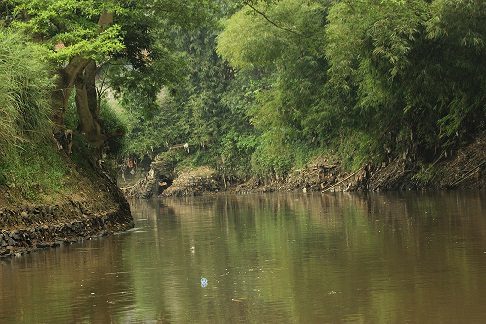Single-use plastic waste may be resolved by bamboo

-
Date:
06 Dec 2019 -
Author:
KEHATI
In Indonesia, the movement against single-use plastics is still expanding. After the usage of metal or stainless steel straws became widely popular on social media, numerous new initiatives to reduce plastic waste have lately emerged. One of them is the Indonesian Biodiversity Foundation’s (KEHATI) “Back to Besek” program.
This campaign to combat plastic waste, according to Basuki Rachmad, Manager of the Marine campaign at the KEHATI Foundation, was inspired by the notion that Indonesia has a vast amount of untapped natural wealth. It seems reasonable that bamboo is used as the primary component of baskets. This plant is deeply ingrained in Indonesian culture and is said to have profound philosophical significance. Actually, we have been exposed to bamboo since birth. Bamboo was used to cut the baby’s placenta in ancient times, and it was also used to cover graves after someone died. The philosophical significance of bamboo is extremely varied, according to Basuki, who spoke at the 24th Philanthropy Learning Forum in Kuningan with the topic “From Trash to Treasure.”
Bamboo is regarded as having a variety of significant environmental advantages for human life. In addition to being a source of water, this plant can be utilized to manufacture fabrics for clothes or other environmentally beneficial items. But regrettably, up until now, neither the Indonesian government nor its citizens have fully utilized this potential. In actuality, according to Basuki, the bamboo in Indonesia is of a far higher sort and quality than the bamboo in China.
“Because we live in a tropical nation, our bamboo grows 70 times faster. Despite only having been planted once, the plants are diverse and grow in groups. Since they are under the monopodia type, they develop more slowly than bamboo trees in China,” according to Basuki. China needs a huge amount of land to cultivate bamboo.
However, the Chinese government is already aware of this plant’s enormous potential. It should come as no surprise that they currently have millions of hectares of land available for bamboo farming. Basuki asserts that the Back to Besek initiative alone has the capacity to lessen the long-standing worldwide issue of single-use plastic trash.
Source: okezone.com
